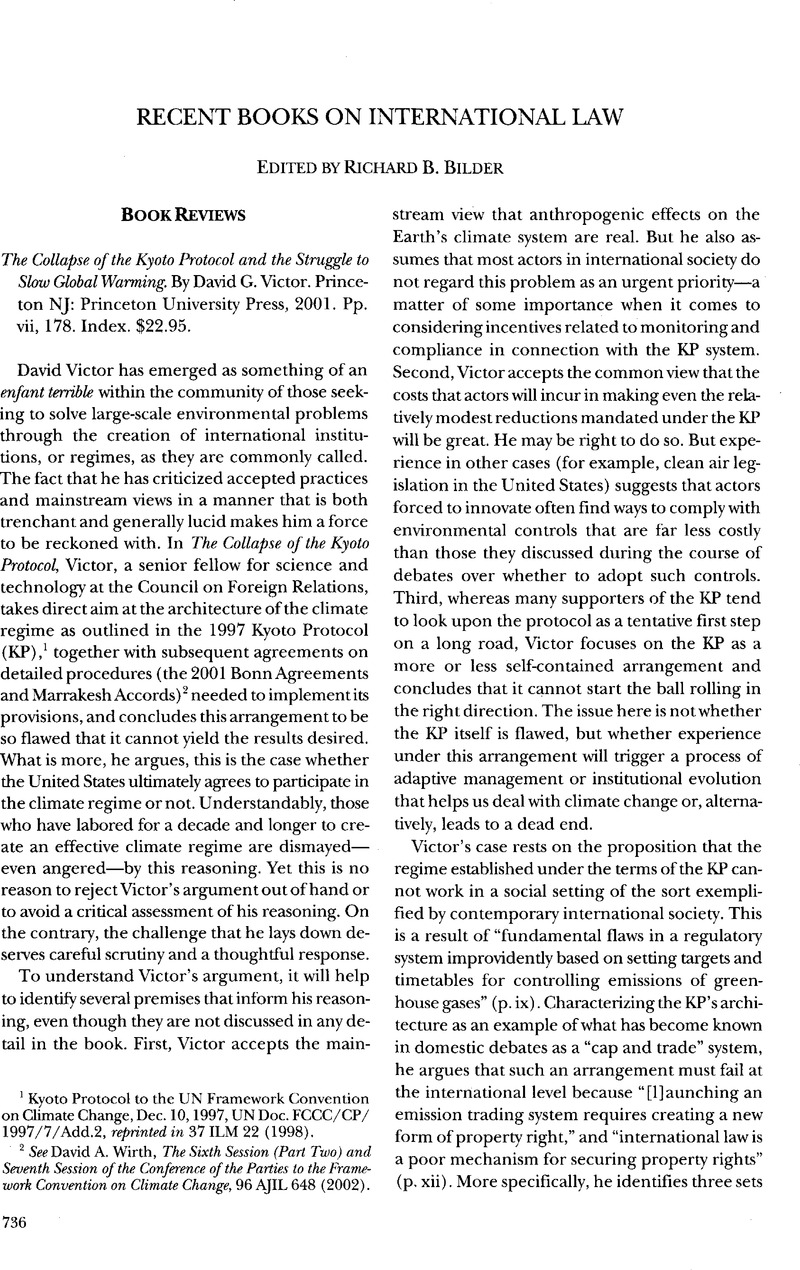No CrossRef data available.
Published online by Cambridge University Press: 27 February 2017

1 Kyoto Protocol to the UN Framework Convention on Climate Change, Dec. 10,1997, UN Doc. FCCC/CP/ 1997/7/Add.2, reprinted in 37 ILM 22 (1998).
2 See David, A. Wirth, The Sixth Session (Part Two) and Seventh Session of the Conference of the Parties to the Framework Convention on Climate Change, 96 AJIL 648 (2002).Google Scholar
3 McKibbin and Wilcoxen describe a regime featuring a hybrid arrangement that “would combine a fixed number of tradable, long-term emissions permits with an elastic supply of short-term permits, good for only one year.” Warwick, J. McKibbin & Peter, J. Wilcoxen, The Role of Economics in Climate Change Policy, 16 J. Econ. Persp. 119 (2002)Google Scholar. The governments of member states would be authorized to determine for themselves how many of the nontradable short-term permits to sell at a fixed price.